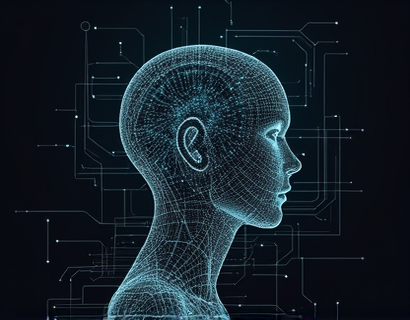AI-Powered Task Management: Revolutionizing Personal and Professional Productivity with Intelligent Agents
In today's fast-paced world, the demand for efficiency and productivity has never been higher. Individuals and businesses alike are constantly seeking innovative solutions to manage their time and tasks more effectively. Enter AI-powered task management systems, which are transforming the way we approach our daily responsibilities. These intelligent agents are designed to streamline personal and professional tasks, allowing users to focus on high-priority activities and achieve enhanced efficiency. This article explores how AI technology is redefining task management, integrating seamlessly into our daily routines, and maximizing our potential.
The Rise of AI in Task Management
Artificial intelligence has made significant strides in recent years, with applications spanning various industries. In the realm of task management, AI is proving to be a game-changer. By leveraging machine learning algorithms and natural language processing, AI-powered tools can analyze user behavior, predict needs, and automate repetitive tasks. This not only saves time but also reduces the cognitive load on individuals, enabling them to concentrate on more strategic activities.
Understanding AI Agents
AI agents are software programs that utilize artificial intelligence to perform tasks on behalf of users. These agents can learn from user interactions, adapt to preferences, and provide personalized assistance. In the context of task management, AI agents can help users organize their schedules, prioritize tasks, and even suggest optimal times for completing specific activities. The ability of these agents to understand context and user intent makes them invaluable in enhancing productivity.
Key Features of AI-Powered Task Management Systems
AI-powered task management systems come equipped with a variety of features designed to improve productivity. Some of the most notable features include:
- Task Automation: AI agents can automate routine tasks such as scheduling meetings, sending reminders, and managing emails. This automation frees up valuable time for users to focus on more critical responsibilities.
- Smart Prioritization: By analyzing deadlines, task complexity, and user preferences, AI agents can prioritize tasks effectively. This ensures that users are always aware of what needs to be done first.
- Contextual Understanding: AI agents can understand the context of tasks, allowing them to provide relevant suggestions and insights. For example, if a user is working on a project, the AI can recommend resources or tools that may assist in completing the task.
- Integration with Other Tools: Many AI-powered task management systems can integrate with existing productivity tools, such as calendars, email clients, and project management software. This seamless integration enhances the overall user experience.
- Data-Driven Insights: AI agents can analyze user data to provide insights into productivity patterns. This information can help users identify areas for improvement and optimize their workflows.
Benefits of AI-Powered Task Management
The adoption of AI-powered task management systems offers numerous benefits for both individuals and organizations. Some of the most significant advantages include:
1. Increased Efficiency
By automating routine tasks and providing intelligent suggestions, AI agents enable users to accomplish more in less time. This increased efficiency can lead to higher output and improved performance.
2. Enhanced Focus
With AI handling mundane tasks, users can concentrate on high-priority activities that require critical thinking and creativity. This shift in focus can lead to better decision-making and innovative solutions.
3. Improved Work-Life Balance
AI-powered task management systems can help users manage their time more effectively, leading to a better work-life balance. By reducing the time spent on administrative tasks, individuals can allocate more time to personal pursuits and self-care.
4. Better Collaboration
In a professional setting, AI agents can facilitate collaboration among team members by streamlining communication and task assignment. This improved collaboration can lead to more cohesive teamwork and successful project outcomes.
5. Data-Driven Decision Making
AI agents provide valuable insights into productivity patterns, enabling users to make informed decisions about their workflows. This data-driven approach can lead to continuous improvement and optimization of processes.
Implementing AI-Powered Task Management in Your Routine
Integrating AI-powered task management into your daily routine can be a straightforward process. Here are some steps to help you get started:
1. Identify Your Needs
Before selecting an AI-powered task management system, assess your specific needs and goals. Consider the types of tasks you want to automate, the level of integration required, and any particular features that are important to you.
2. Research Available Tools
There are numerous AI-powered task management tools available on the market. Research different options, read user reviews, and compare features to find the best fit for your requirements.
3. Start Small
When implementing a new system, start with a few key tasks to automate. This gradual approach allows you to familiarize yourself with the tool and assess its effectiveness before fully integrating it into your routine.
4. Monitor and Adjust
As you begin using the AI-powered task management system, monitor its impact on your productivity. Be open to making adjustments based on your experiences and feedback from the system.
5. Embrace Continuous Learning
AI technology is constantly evolving, and staying informed about new features and updates can help you maximize the benefits of your task management system. Engage with user communities and explore resources to enhance your understanding of the tool.
Challenges and Considerations
While AI-powered task management systems offer numerous benefits, there are also challenges and considerations to keep in mind:
1. Data Privacy
As with any technology that collects and analyzes user data, privacy concerns are paramount. Ensure that the AI-powered task management system you choose adheres to strict data protection standards and provides transparency regarding data usage.
2. Dependence on Technology
Relying heavily on AI agents for task management may lead to a decrease in critical thinking and problem-solving skills. It's essential to strike a balance between utilizing technology and maintaining personal engagement in your tasks.
3. Learning Curve
Adopting a new AI-powered system may require a learning curve. Be prepared to invest time in training and familiarizing yourself with the tool to fully leverage its capabilities.
The Future of AI in Task Management
The future of AI in task management looks promising, with advancements in technology paving the way for even more sophisticated solutions. As AI continues to evolve, we can expect to see:
1. Greater Personalization
Future AI agents will likely become even more adept at understanding individual user preferences and behaviors, leading to highly personalized task management experiences.
2. Enhanced Collaboration Features
As remote work becomes increasingly common, AI-powered task management systems will likely incorporate more robust collaboration features, enabling teams to work together seamlessly regardless of location.
3. Integration with Emerging Technologies
AI will continue to integrate with other emerging technologies, such as virtual reality and augmented reality, to create immersive task management experiences that enhance productivity.
4. Continuous Learning and Adaptation
Future AI agents will likely possess advanced learning capabilities, allowing them to adapt to changing user needs and preferences in real-time.
Conclusion
AI-powered task management systems are revolutionizing the way we approach productivity, offering intelligent solutions that streamline personal and professional tasks. By harnessing the power of AI agents, individuals and businesses can enhance efficiency, improve focus, and achieve a better work-life balance. As technology continues to advance, the potential for AI in task management is limitless, paving the way for smarter, more efficient workflows. Embracing this cutting-edge technology can empower users to unlock their full potential and redefine productivity in their lives.











































